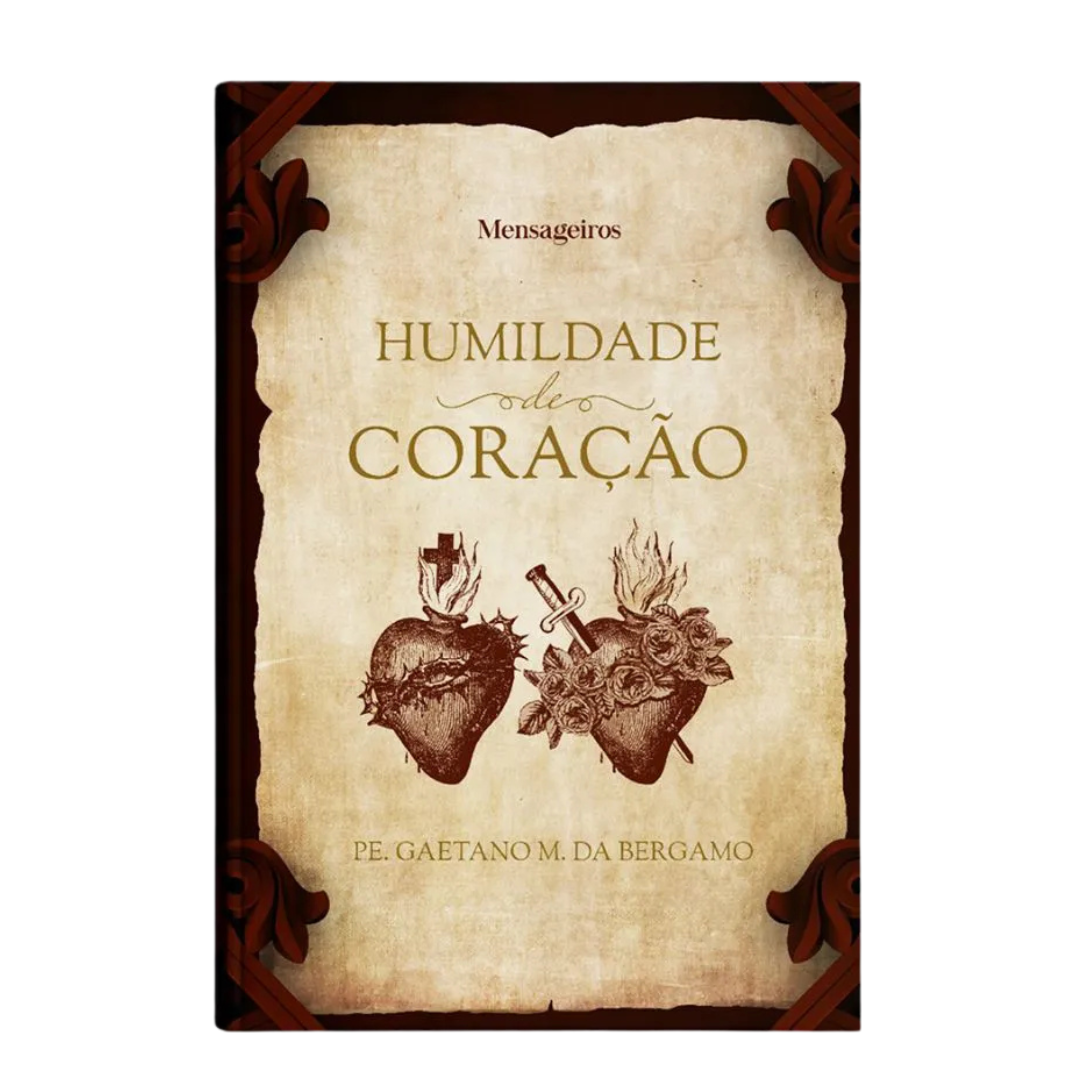Book Humility of Heart
Book Humility of Heart is backordered and will ship as soon as it is back in stock.

The book Humility of Heart is considered a classic of Catholic spirituality and one of the most important books ever written on humility, said exorcist Fr. Chad Ripperge r . Cardinal Herbert Vaughan, who prefaced the first edition of the book, compared it, in regard to the virtue of humility, to St. Louis Marie's Treatise on True Devotion to the Blessed Virgin. Grignio n of Montfor t . And among many who attest to the preciousness of Father Gaetano's works, there is Saint Padre Pio of Pietrelcin a .
Largely unknown in Brazil, this is the first work by Father Gaetano translated into Portuguese. The author brings together all imaginable reasons for practicing the virtue of humility. From every direction, Father Gaetano explains the reasons why this virtue is essential in the lives of all the saints and all those who are on the path to perfection. Since no one will enter Heaven without perfection and humility , it is up to all of us to appropriate the requirements to gain true humility of heart, because once we possess this virtue, we can then take great steps in the spiritual life. But without it, we are simply deceiving ourselves regarding our spiritual progress and postponing the great work of our own salvation.
Gaetano Maria da Bergamo (religious name of Marco Migliorini) was born on February 25, 1672. At the age of eighteen, brilliantly trained in rhetoric, logic, philosophy and law, he chose the religious life in the Order of Friars Minor Capuchin. In homage to Gaetano da Thiene , on May 3, 1691, on the occasion of his investiture in the convent of Trenzano , he assumed the name Gaetano Maria.
He fell ill with tuberculosis in 1722, and the disease brought him to the brink of death. He recovered, convinced that he had received a grace from Our Lady. To safeguard his health, his superiors forced him to refrain from preaching. He thought of dedicating himself to teaching through his writings. In his cell, during the remaining thirty years of his life, he published at least forty volumes of meditations, theological works and aids for religious, which quickly made him so popular and well-known that he became a consultant to the Holy See, advisor to the bishop of Bergamo, to the Curiae of Brescia, Padua, Venice and to the Lombard province of the Capuchins. In July 1753, the year of his death, already ill and foreseeing his imminent end, he stopped writing and, not wanting to leave any reminders of himself, he had his important collection of letters burned.
He was an orator, ascetic writer and theologian. He preached the ' ordinary path of perfection ' to be followed with the help of humility, charity and piety of heart in three stages: meditation on sins and repentance, imitation of Christ through the practice of virtues, and the achievement of union with Him through the exercise of true and proper holiness. His books were an extraordinary success.
Publisher: Messengers
Page number: 164
Dimensions: 21x 13x 1.3 cm
Nenhuma especificação disponível para este produto.


